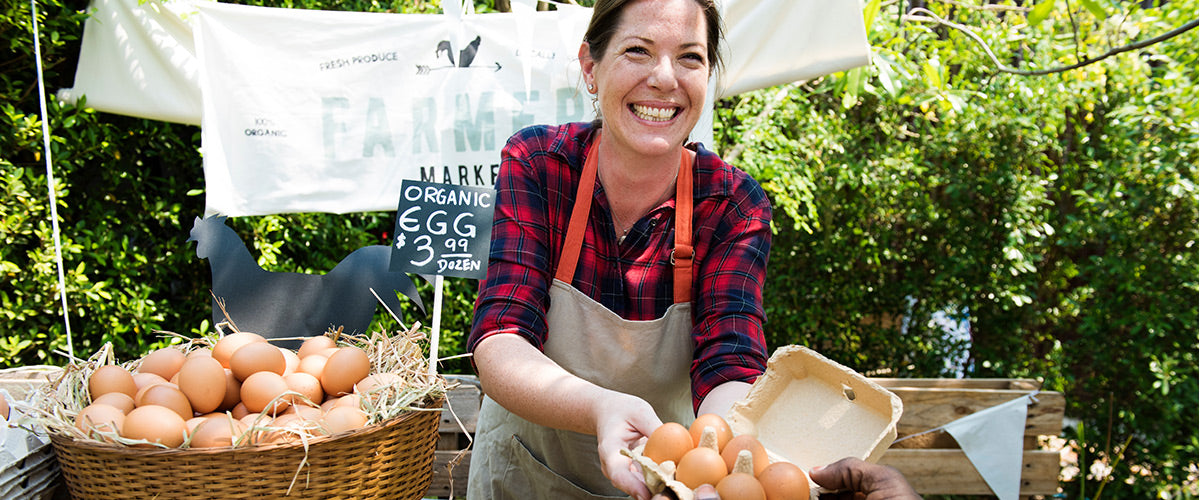Organic? Logical!

The organic sector has been growing for years; in 2018, consumers in Germany spent 5.5% more money on organic food, a total of €10.91 billion. A very pleasing development, in our opinion. Because we are convinced that organic farming is not only the better, but the necessary form of food production if we want to treat our environment, the climate, animals and ourselves responsibly.
Organic for the climate
We believe that future generations have a right to expect us to take our responsibility seriously and act accordingly. Organic farmers produce 15 to 20 percent less greenhouse gases. In particular, not using mineral nitrogen fertilizers, which are used in conventional agriculture, reduces CO2 emissions. Organic fertilization builds up more humus and thus binds carbon dioxide.
By way of comparison: according to Foodwatch, one kilogram of conventionally grown wheat produces as much CO2 as a 3.4-kilometer drive in a BMW 118d. With organic wheat, it is only 1.5 kilometers. However, in order to reduce emissions by 60 to 80 percent by 2050, the production of meat and milk would also have to be reduced by 70 percent.
Organic for the environment
In organic farming, no synthetic pesticides are sprayed, so the environment is spared from pesticide sprays. This protects the soil and groundwater, as chemical sprays used in conventional cultivation seep into the groundwater and pollute it. Avoiding pesticides also preserves biodiversity, as does the avoidance of monocultures. Organic farms often cultivate "old" and little-known varieties and make a particularly strong contribution to the diversity of herbs, fruit and vegetables. Marginal strips, hedges and small biotopes benefit rare plants, insects and birds, thus further promoting biodiversity. Incidentally, organic farming also helps bees - and ultimately us, because without them we would have almost 80 percent less to eat. There are already regions where flowers have to be pollinated by hand by humans.
Organic for the animals
Livestock farming in organic agriculture means species-appropriate husbandry. This means more space in the barn, enough exercise, no concentrated feed, but an organic feed suitable for the animal species. Homeopathy and naturopathy have priority in the event of illness. By not using pesticides in organic farming, we naturally also consume fewer environmental toxins when we eat organic food. Organic meat and dairy products contain neither medicines nor antibiotics, which are administered to animals prophylactically in conventional farming. Organic plants also have a higher nutrient and vital substance content. During processing, over 400 additives are permitted for conventional foods, some of which can trigger allergies. For organic food there are only 40 additives. In organic farming, neither seeds, animal feed nor ingredients produced with the aid of genetic engineering are permitted, nor are they permitted in any further processing steps. This provides security, because we still do not know how genetic engineering changes our food or us. The organic sector also attaches great importance to fair prices and fair cooperation - both in trade with developing countries and here at home.
Organic for a good reason
GSE founder Michael Gracher became aware of the topic of organic early on through exchanges with wholesalers. "I realized what conventional agriculture actually means and how harmful the effects of this type of food production can be in large parts. That convinced me to go organic. My two young daughters also made me want to make a positive impact on the world. For example with organic food, which I thought was the right thing to do," says Gracher about his decision to go organic. And although the organic concept was not yet so mature in the 1990s and there were hardly any certifications - and certainly not for food supplements - Gracher was very happy with his decision. CitroPlus® Gracher was the first to bring organic grapefruit seed extract onto the market.




